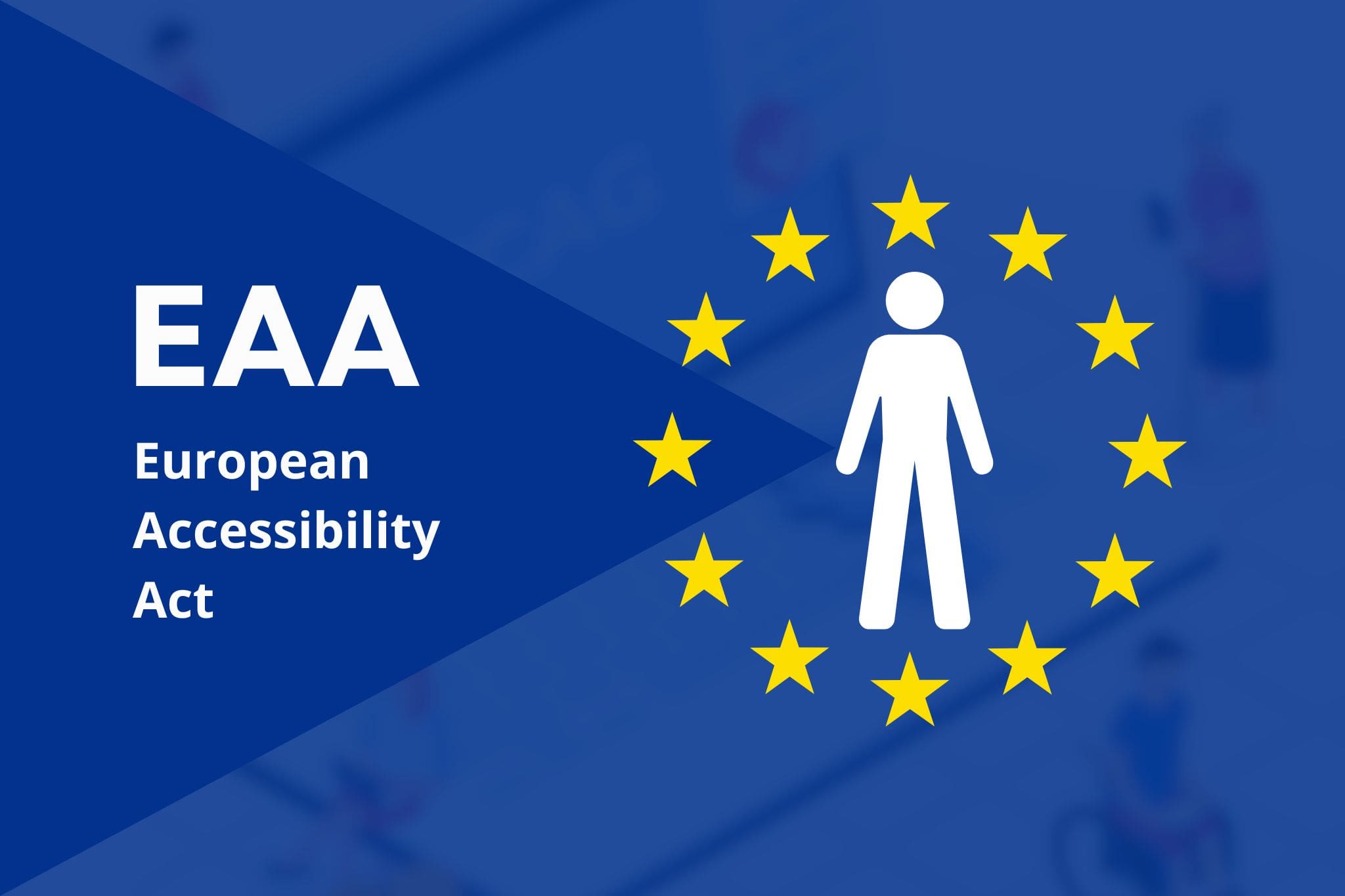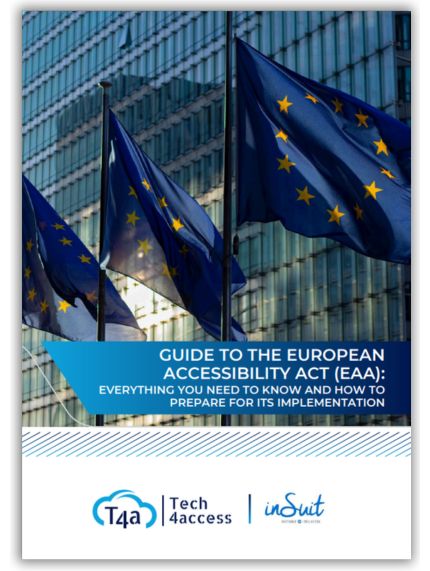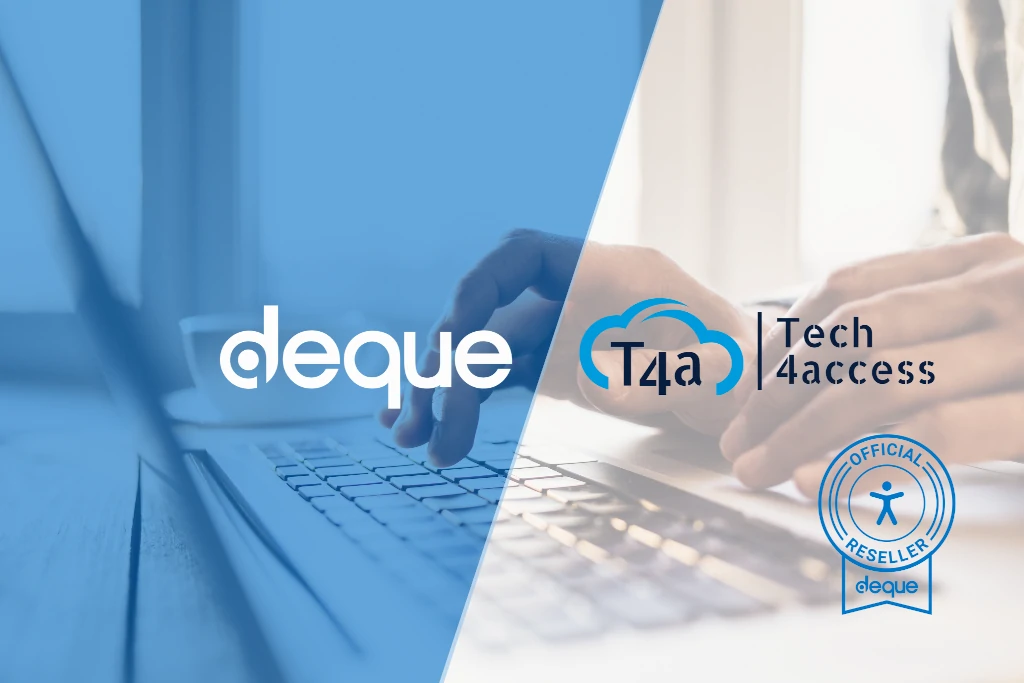In an increasingly digitalised world, access to digital information, content and services has become a fundamental need for everyone. However, people with disabilities still face significant barriers when accessing these resources.
The European Accessibility Act (EAA), also known as the European Union Directive 2019/882, comes as a response to this problem, establishing a legal framework to guarantee the accessibility of digital products and services in the European Union (EU). Its entry into force is scheduled for 28 June 2025, and from that date the products and services within the scope have to comply with all the established requirements.
The European Accessibility Act (EAA), more than just a legal obligation
The EAA or Directive (EU) 2019/882 contains the minimum accessibility requirements for products and services, in order to ensure no discrimination against any people, regardless of their condition. Some of these requirements are aimed to guarantee access to digital platforms such as websites and mobile apps effectively, and without barriers. This directive establishes a set of requirements that providers of digital products and services must follow to ensure accessibility of their products and services.
Moreover, some of these requirements are: clear and accessible information, readability, perception and handling of information and compatibility of assistive technologies among others.
It also represents not only a legal obligation, but also an ethical commitment to equal opportunities and fairness. Its implementation reflects European society’s dedication to building a more inclusive digital environment.
In conclution, sectors such as technology and finance, among others, will have to make significant adjustments to comply with the new accessibility standards.
Transposition of Directive 2019/882 in Europe
In Europe, countries such as Spain, Italy, and France have already transposed Directive (EU) 2019/882 into their national legislation, reaffirming their commitment to accessibility and inclusion. In Spain, this adaptation was carried out through Law 11/2023, which establishes specific standards for the accessibility of products and services. Italy implemented this directive through Legislative Decree No. 82 of May 27, 2022, and in France, it was formalised through Law No. 2023-171.
These national laws not only meet European requirements but also strengthen the accessibility legal framework in each country, consolidating these states’ commitment to inclusion and equal opportunities for all individuals in the region.
Benefits and impact
Adopting the European Accessibility Act (EAA) standards may involve considerable efforts, but the long-term benefits are significant. Additionally, companies that comply with Accessibility standards not only expand their audience, but also improve customer satisfaction and strengthen their reputation among others. These are the benefits:
- Increased reach and customer satisfaction: companies that comply with digital accessibility regulations experience increased reach and customer satisfaction as their offerings revolve around a more usable and accessible experience.
- Improved brand reputation: digital accessibility demonstrates a company’s commitment to inclusion and equity, which translates into improved brand reputation and corporate social responsibility.
- Fostering innovation: EAA drives innovation in the development of accessible digital products and services, which benefits all users.
- More inclusive society: accessibility contributes to creating a more inclusive society that is aware of the needs of all its members.
Sectors involved
The European Accessibility Act covers a wide range of digital products and services within the EU market. EU Directive 2019/882 provides more comprehensive information on these.
Some of the sectors under the scope of the legislation that must adhere to this regulation are:
- Technology and software development: companies designing and developing websites, mobile applications and self-service terminals must comply with accessibility standards.
- Financial services: financial institutions offering online services must comply with accessibility requirements.
- E-commerce: online shops and sales platforms must ensure that their websites and applications are accessible to all.
- Transport and travel: transport companies should ensure that their digital platforms are accessible.
- Government institutions: public institutions must comply with accessibility requirements for their websites and online services.
- Social networks: they must ensure accessibility for all users.
- Emergency response: including the European emergency number “112”.
Key requirements of the Euroepan Accessibility Act
The The EU Directive 2019/882 or European Accessibility Act ensures accessibility to digital products and services through the following essential requirements:
- Provide clear and accessible information on the functioning and accessibility of the service.
- Provide information through multiple sensory channels to ensure comprehension.
- Present information in a simple and perceptible way.
- Adapt content in alternative textual formats.
- Use appropriate font sizes and typefaces, as well as sufficient contrast to improve legibility.
- Provide alternative presentations of content where necessary.
- Ensure that electronic information is perceptible, operable, understandable and robust.
- Ensure the accessibility of websites, applications and mobile services.
- Provide information on accessibility and compatibility with assistive technologies in support services.
Complies with the EAA and promotes inclusiveness by downloading our guide
The European Accessibility Act is fundamental to guarantee digital accessibility in the EU. From Tech4access, as consultants and experts in implementing technological solutions for accessibility and usability, we invite you to comply with these standards to promote a digital environment without barriers and more inclusive for everyone.
With our Service for Integrated digital Accessibility (SIA®), we not only help you to analyse and comply with the requirements, but we also offer a certification recognised in over 100 countries that ensures your products and services are at the forefront of accessibility. Become an agent of change!






